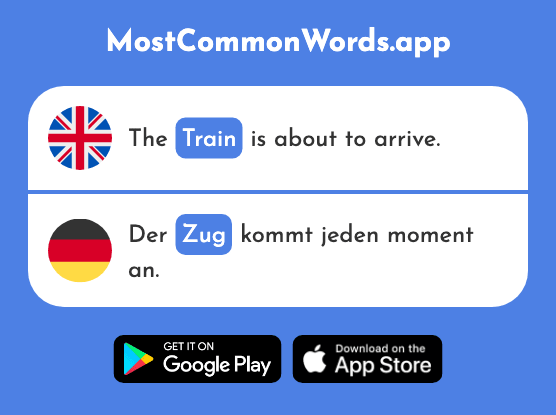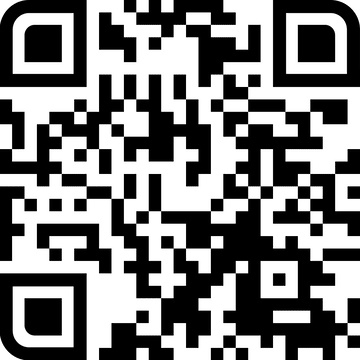Train - Zug (The 675th Most Common German Word)
The German translation for Train is Zug. This word often comes up when talking about transport & travel, sport, education. It can be used as noun. It is classified as a A1 word, and is the 675th most common word in German. You can listen to their pronunciations, and you can also see example sentences for context below. Our app contains over 60,000 example sentences, pronunciations, and various practice types for the 3000 most common German words. Download it now to discover them all.
Pronunciation
Examples
The train is about to arrive.
Der Zug kommt jeden Moment an.
I have seen him once on the train.
Ich habe ihn einmal im Zug gesehen.
He must have missed the train.
Er hat wahrscheinlich den Zug verpasst.
It's the last train.
Das ist der letzte Zug.
Perhaps he missed the train.
Vielleicht hat er den Zug verpasst.
It's no more than four minutes from here by train.
Mit dem Zug sind es von hier nicht mehr als vier Minuten.
I must catch the first train.
Ich muss den ersten Zug erwischen.
He might have missed the last train.
Er hat vielleicht den letzten Zug verpasst.
The train has just gone.
Der Zug ist soeben abgefahren.
In any case, take that train tomorrow.
Nehmen Sie auf jeden Fall morgen den Zug.
He hurried so he wouldn't miss the train.
Er beeilte sich, um den Zug nicht zu verpassen.
Our train arrived on time.
Der Zug kam fahrplanmäßig an.
The train hasn't come yet.
Der Zug ist noch nicht da.
He may be on the next train.
Er ist vielleicht im nächsten Zug.
The train is late.
Der Zug hat Verspätung.
At times the train doesn't arrive on time.
Manchmal kommt der Zug nicht pünktlich an.
My train leaves at six o'clock and arrives there at ten o'clock.
Der Zug fährt um sechs Uhr ab und kommt um zehn Uhr an.
I have to leave early to catch the train.
Ich muss früh los, um den Zug zu erwischen.
The train wasn't as crowded as I thought it would be.
Der Zug war nicht so voll wie ich dachte.
The train is packed today.
Der Zug ist heute richtig voll.
You are on the wrong train.
Du bist im falschen Zug.
This word appears in the following categories
Similar, mistakable words
 English:
train
English:
train
 German:
zug
German:
zug


























